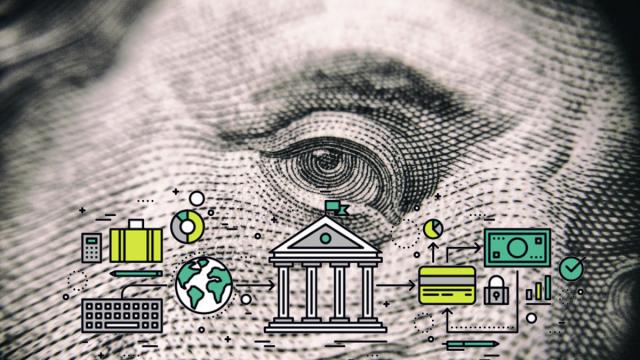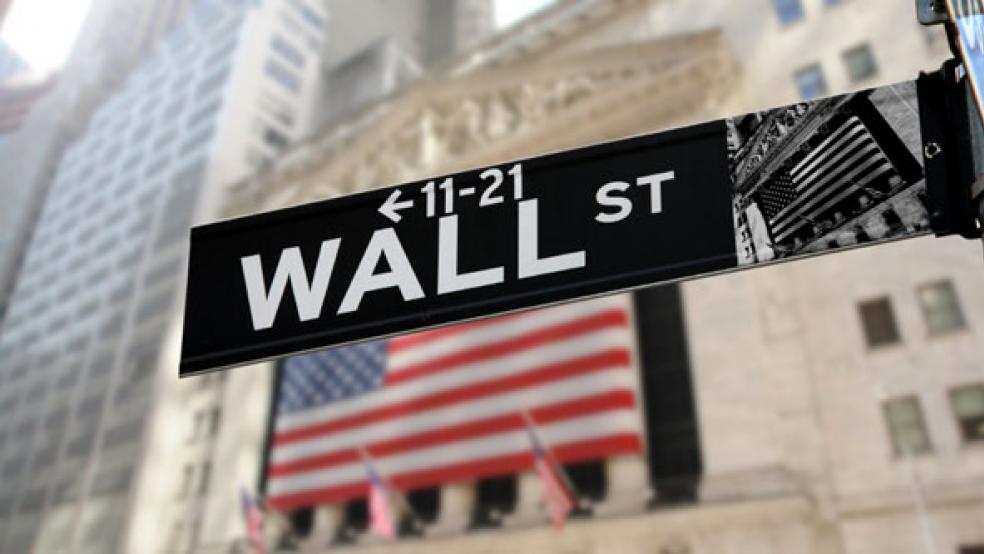
This is Part 8 in a 10-part series on public banking and economic justice. Read parts 1, 2, 3, 4, 5, 6, 7, 8, 9 and 10.
The Problem With Private Finance
Spoiler alert: The problem is asymmetry, and it can’t be solved. What do I mean? The interests of private investors and finance capitalists will always influence the process of private banking, producing a power imbalance that cuts to the core of our shared materiality.
In other words, the power to bank – the power not only to lend money but to create it – is too great a power to make available only to a few in the pursuit of profit.
At the end of May 2018 two stories appeared that illustrate the asymmetry enjoyed by big banks. A vice president of the criminal bank Goldman Sachs, Woojae “Steve” Jung, was charged with $140,000 in insider trading – trades on companies that are clients of the bank – based on a complaint by the Securities and Exchange Commission.
And in Portland, Wells Fargo enjoys such a privileged position in the financial hierarchy that the City Council found itself unable to divest from that bank. According to my friends at the Portland Public Banking Alliance, the Council voted 3-1 (one member did not vote) to approve a 5-year contract with the giant lawbreaking bank because “the alternatives are just as bad.”
“The Council was over a barrel,” the Alliance’s David Delk told me. Delk’s group has been pushing for years for the city and the state of Oregon to consider public banking. A city- or state-owned bank could be a responsible and transparent repository for public funds. “For us,” he said, “we could resolve the problem by creating our own public depository bank and then do the work ourselves.”
In each instance, the fact that these banks are still doing business eclipses the absurdity of their continued privileges and misdeeds. It suggests that no limits will ever be acceptable to them and that they are unable and unwilling to self-check their power. It refutes the idea – at least when extended into the financial world – that private interests can be reliably harnessed to the public good without the heavy hand of regulations those interests will never accept.
As David Delk suggests, let’s just do it ourselves. But who is “ourselves” and why are “we” better than them?
Resource Management: Democratic or Autocratic?
The conversation about public and private banking is part of a larger conversation about managing the resources that affect all of us.
Aside form public banking, other social movements – like the effort to give labor greater control of the economy, or to reclaim the public and natural commons, or to achieve legal recognition of the socioeconomic rights for humans, nonhumans and the planet itself – also begin from the assumption that the primary nature of the world is shared. That underlying principle is important because it influences how we look at “negative externalities,” the social and environmental effects of private economic transactions. The common conclusion of these movements is that if people can be empowered to deliberate, discuss and take responsibility for our material institutions, those externalities won’t fall so often on innocent and vulnerable beings.
Both public and private management of resources can be inefficient. The public and private sectors can both be corrupted by bad actors. But the private sector lacks democratic checks and balances.
The private sector also relies on a profit motive that is not consistently sustainable. Profits fall over time. More wealth must be extracted from all available targets. The growth imperative prioritizes immediacy, choosing rapid growth over slow and sustainable development (which may not include growth at all).
On top of all that, the imperative to use interest to generate profit – the capitalization of finance – supercharges all the other impacts of capitalism. We extract more from labor and pay workers less. We extract more from the planet and restore it less. Even if we didn’t have all those other incentives to keep growing, our attachment to interest-as-profit keeps us growing, unsustainably.
Letting Private Interests Into Public Banks
This means that the public banking movement needs to do more than push for public banks. We also need to carefully evaluate the many proposed models for what a public bank should look like. Should we stick to models like North Dakota’s BND, which takes public money as deposits, has no shareholders, and is essentially run as a public utility? Or should we experiment with models like those proposed by the Roosevelt Institute, where a bank would combine public and private funding, and public and private decision makers, under a chartered mission to increase social investment?
Of course, any model that significantly incorporated public decision making would be much better than the crisis-plagued world of Wall Street banks. But while we should be open-minded, we should also be cautious about incorporating not only private sector investment, but private sector decision makers.
“Many public-private partnerships are created based on the mistaken assumption that the public sector cannot raise enough money to fund the entity or project, so they reach out to the private sector for investment dollars," Marc Armstrong, who co-founded both the Public Banking Institute and Commonomics USA, recently explained to me. The assumption is mistaken because policymakers and bankers accept the myth that money is subject to the same conditions of scarcity as other resources.
Armstrong says that in limited and careful ways, this could work. “It would make sense if the public bank played this role to fund local investments” such as renewable energy infrastructure or worker cooperatives. He says the problem comes when Wall Street realizes it’s being left out of these transactions and starts leaning on the private actors in the local mix, buying out the voting rights of the private investors who may turn out not to be so socially responsible after all. “That's something that opens the door to corruption and inefficiencies,” he says.
The question is whether the public or private sector is ultimately in control of the transactions. "In a [public-private partnership] arrangement,” Armstrong adds, “government is put in the position of having to regulate and private industry is put in the position of trying to offload costs. So, you end up creating a really bad set of behaviors. On the other hand, the Bank of North Dakota sets the standard for bank loan programs and forces everyone to be accountable for their respective roles. BND is the deal-maker, but everyone gets a seat at the table if they wish. If they don't, they go and do lending on their own, but if they do, they need to sit across the table from BND and be accountable for their role.”
A public bank can lend to, and provide liquidity for the benefit of, the private sector without being capitalized by, or offering shares to, the private sector. A public bank can assist private banks. The question is which sector maintains final guardianship over public resources, which entity has the final word on transactions that affect public stakeholders. Private actors can come to the table to invest their money. And, private actors can ask for public money. But a body subject to public monitoring, administrative review, and judicial review should be entrusted to facilitate investment transactions and other banking practices.
Because the final question is who controls the policies, laws and management practices concerning how money is saved, invested and created.
Well, the real final question is whether we need private banks at all – of any size, in any context. The answer to that may take more time to manifest.
READ PARTS 1, 2, 3, 4, 5, 6, 7, 8, 9, 10
Matt Stannard is Policy Director at Commonomics USA and a member of the Public Banking Institute’s Board of Directors. Matt Stannard writes about cooperative economics, law, politics and culture. His blog is Cowboys on the Commons. Click to read more by Matt on Occupy.com.













